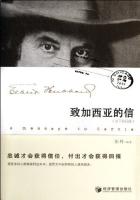When Godfrey returned to the Maison Blanche, wearing a handsome gold watch, which had been presented to him with an effusive letter of thanks by the gentleman whom he had rescued and his relatives, he found himself quite a celebrity. Most of the Pasteur's congregation met him when he descended from the diligence, and waved their hats, but as he thanked heaven, did not "jodel."
Leaving the Pasteur to make some acknowledgment, he fled to the house, only to find Madame, Juliette, a number of friends, to say nothing of Jean, the cook and the servant girl, awaiting him there. Madame beamed, and looked as though she were about to kiss him; the fresh and charming Juliette shook his hand, and murmured into his ear that she had no idea he was so brave, also that every night she thanked the /Bon Dieu/ for his escape; while the others said something appropriate --or the reverse.
Once more he fled, this time to his bedroom. There upon his dressing-@@table lay two letters, one from his father and one addressed in a curious pointed hand-writing, which he did not know. This he opened at once. It was in French, and ran, as translated:
"Ah! Little Brother,--I know all that has happened to you, nor did your godmother need to wait to read about it in the journals.
Indeed, I saw it in my crystal before it happened; you with the man hanging to your arm and the rest. But then a cloud came over the crystal, and I could not see the end. I hoped that he would pull you over the edge, so that in one short minute you became nothing but a red plum-pudding at the bottom of the gulf. For you know that the sweetest-tempered fairy godmother can be made cross by wicked ingratitude and evil treatment. Do not think, little Brother, that I have forgiven you for bringing that old pasteur-@@fool to insult and threaten me. Not so. I pray the speerits night and day to pay you back in your own coin, you who have insulted them also. Indeed, it was they who arranged this little incident, but they tell me that some other speerit interfered at the last moment and saved you. If so, better luck next time, for do not think you shall escape me and them. Had you been true to us you should have had great good fortune and everything you desire in life, including, perhaps, something that you desire most of all.
As it is, you shall have much trouble and lose what you desire most of all. Have you been kissing that pretty Mademoiselle again and trying to make her as bad as her mother? Well, I hope you will, because it will hurt that old fool-pasteur. Wherever you go, remember that eyes follow you, mine and those of the speerits.
Hate and bad luck to you, my little Brother, from your dear godmamma, whose good heart you have so outraged. So fare ill till you hear from me again, yes and always. Now you will guess my name, so I need not sign it.
"P.S.--Eleanor also sends you her hate from another sphere."
This precious epistle, filled with malignity, reaching him in the midst of so many congratulations, struck upon Godfrey like a blast of icy wind at the zenith of a summer day. To tell the truth also, it frightened him.
He had tried to forget all about Madame Riennes and now here she was stabbing him from afar, for the letter bore a Venice postmark. It may be foolish, but few of us care to be the object of a concentrated, personal hate. Perhaps this is due to the inherited superstitions of our race, not long emerged from the blackness of barbarism, but at least we still feel as our forefathers did; as though the will to work evil had the power to bring about the evil desired. It is nonsense, since were it true, none could escape the direst misfortune, as every one of us is at some time or another the object of the hate or jealousy of other human beings. Moreover, as most of us believe, there is a being, not human, that hates us individually and collectively, and certainly would compass our destruction, had he the power, which happily he has not, unless we ourselves give it to him.
Godfrey comforted himself with this reflection, also, with another; that in this instance the issue of his peril had been far different from what his enemy desired. Yet, with his nerves still shaken both by his spiritualistic experiences, and by those of the danger which he had passed, the letter undoubtedly did affect him in the way that it was meant to do, and the worst of it was that he could not consult his friend and guide, the Pasteur, because of the allusion to the scene with Juliette.
Throwing it down as though it were a venomous snake, which indeed, it was, he opened that from his father, which was brief. It congratulated him coldly on his escape, whereof Mr. Knight said he had heard, not in the way that he would have expected, from himself, but through the papers. This, it may be explained, was not strange, since the account was telegraphed long before Godfrey had time to write. As a matter of fact, however, he had not written, for who cares to indite epistles to an unsympathetic and critical recipient? Most people only compose letters for the benefit of those who like to receive them and, by intuition, read in them a great deal more than the sender records in black and white. For letter-writing, at its best, is an allusive art, something that suggests rather than describes. It was because Godfrey appreciated this truth in a half unconscious fashion, that he did not care to undertake an active correspondence with his father. It is the exception also, for young men to care to correspond with their fathers; the respective outlooks, and often, the respective interests, are too diverse. With mothers it is different, at any rate, sometimes, for in their case the relationship is more intimate. In the instance of the male parent, throughout the realm of nature, it is apt to have an accidental aspect or to acquire one as time goes by.














